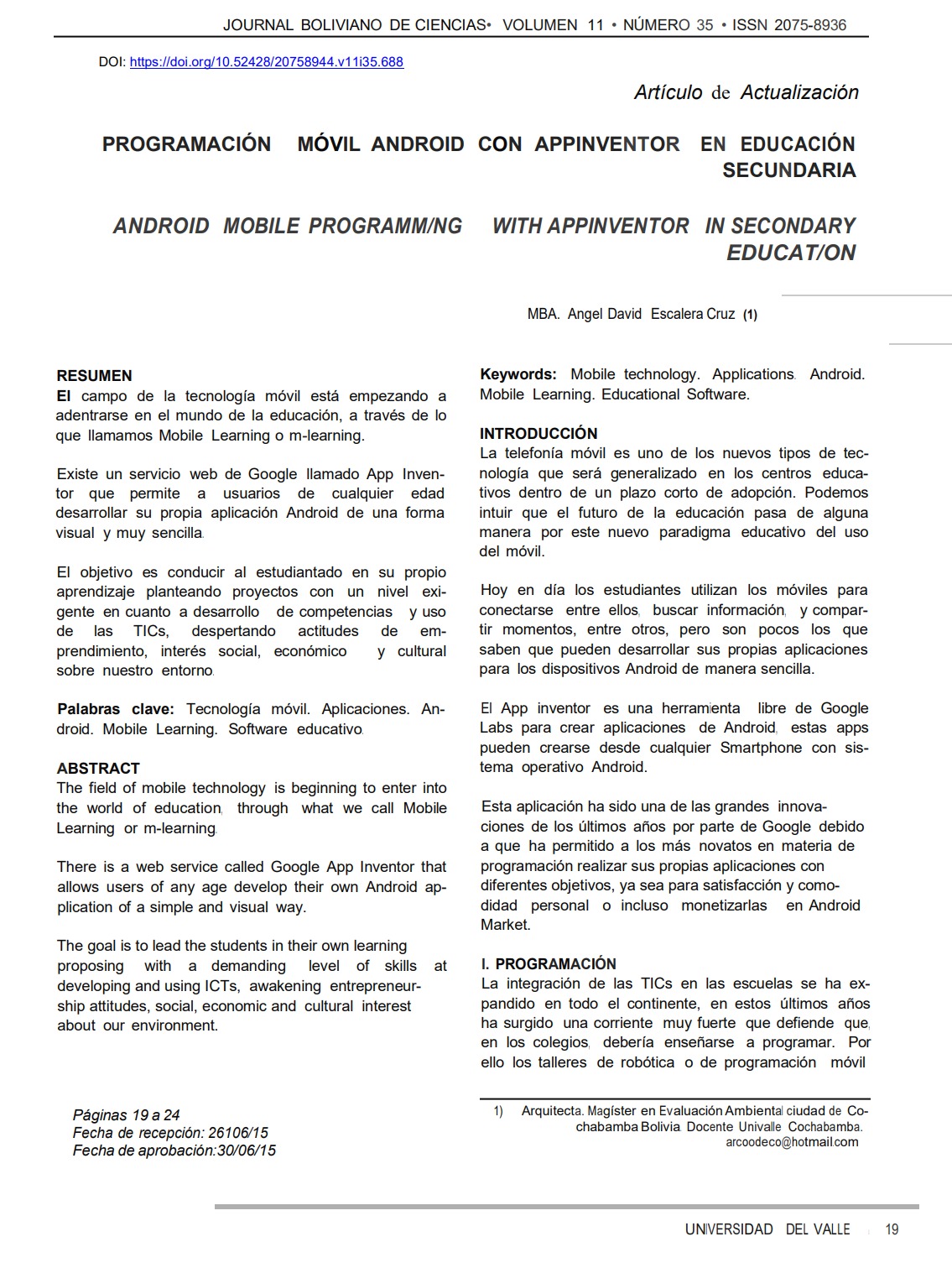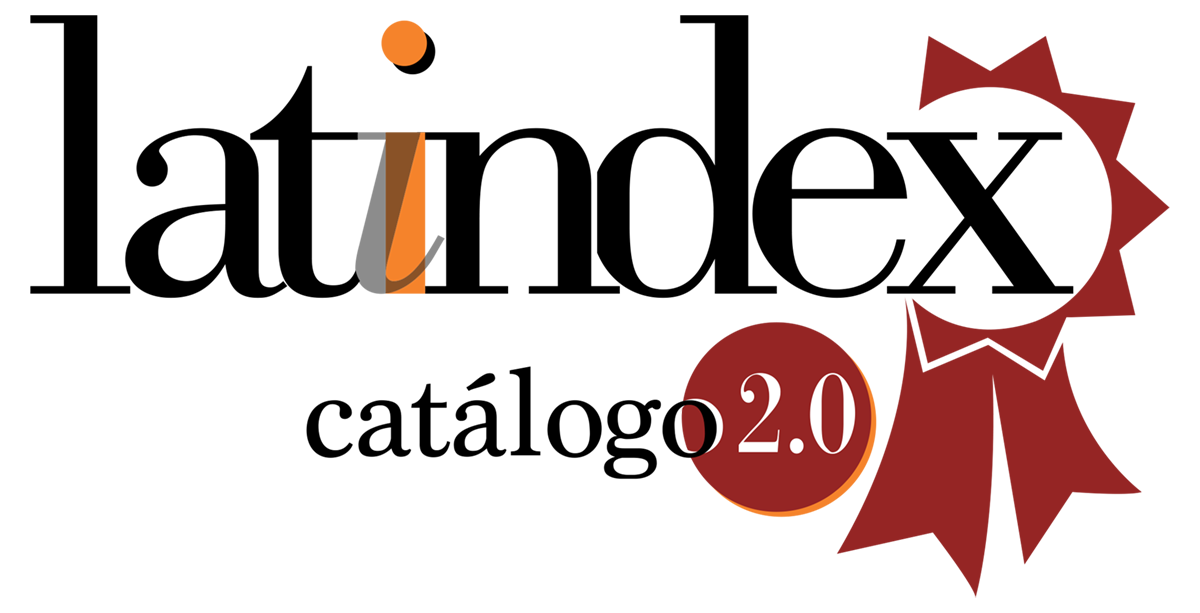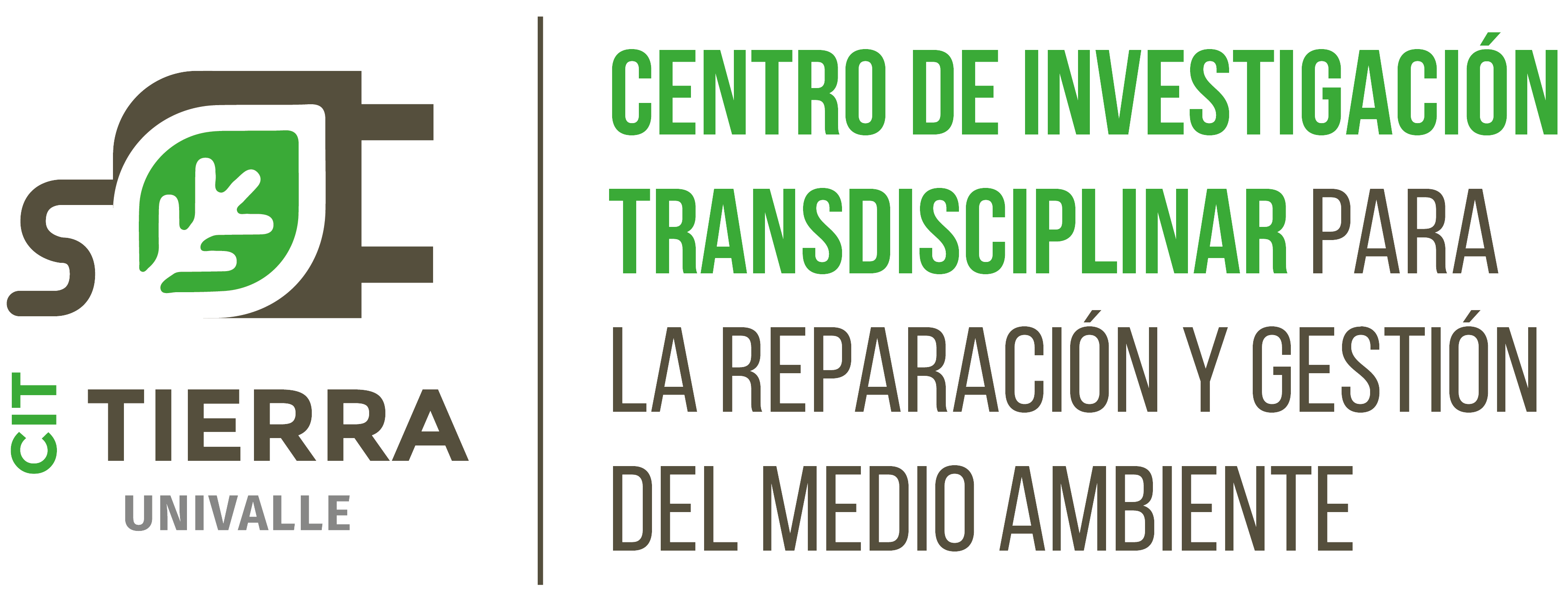Android Mobile Programming with Appinventor in Secondary Education
DOI:
https://doi.org/10.52428/20758944.v11i35.688Keywords:
Mobile technology, Applications, Android, Mobile Learning, Educational SoftwareAbstract
The field of mobile technology is beginning to enter into the world of education, through what we call Mobile Learning or m-learning. There is a web service called Google App Inventor that allows users of any age develop their own Android application of a simple and visual way. The goal is to lead the students in their own learning proposing with a demanding level of skills at developing and using ICTs, awakening entrepreneurship attitudes, social, economic and cultural interest about our environment.
Downloads
References
ITECS. Aprender a programar en el colegio. Madrid : s.n., 2014.
App Inventor herramienta para programar android. LinuxParty. 9 de 2 de 2012.
Proyecto App Inventor. https://sites.google.com/site/appinventorspain/project-definition.s.l. Creative Commons Atribución Compartirlgual 3.0 Unported.
DESTRUELS MORENO, VICENTE. http://aulainformaticaalbal.orgfree.com/Applnventor/Capitulo1IApplnventor_Cap1_Final.pdf.Aula lnformatica.

Downloads
Published
How to Cite
Issue
Section
License
Copyright (c) 2015 Angel David Escalera Cruz

This work is licensed under a Creative Commons Attribution 4.0 International License.
Authors who publish with this journal agree to the following terms:
- Authors retain copyright and grant the journal right of first publication with the work simultaneously licensed under a Creative Commons Attribution License 4.0 that allows others to share the work with an acknowledgement of the work's authorship and initial publication in this journal.
- Authors are able to enter into separate, additional contractual arrangements for the non-exclusive distribution of the journal's published version of the work (e.g., post it to an institutional repository or publish it in a book), with an acknowledgement of its initial publication in this journal.
- Authors are permitted and encouraged to post their work online (e.g., in institutional repositories or on their website) prior to and during the submission process, as it can lead to productive exchanges, as well as earlier and greater citation of published work.














